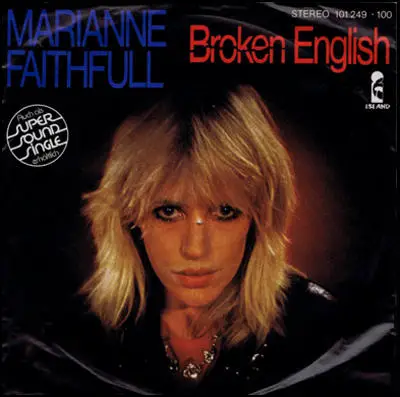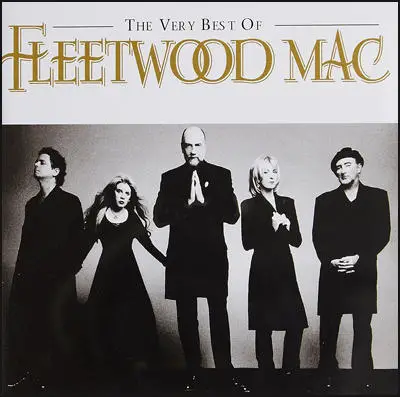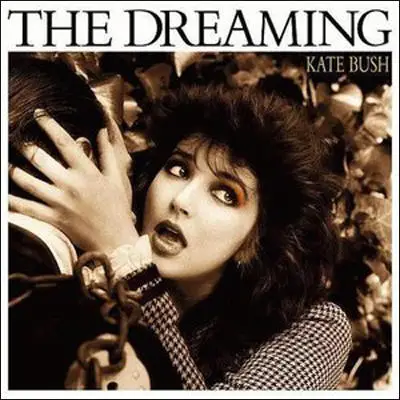Musical Memories of Simon Henderson
1. Buddy Holly (True Love Ways, 1958): This was my Dad’s favourite song. We played it at his Golden Wedding Anniversary, which was appropriate as Buddy wrote it as a wedding gift for his wife. They met for the first time only two months before. He asked her out on a date when they first met and then proposed to her on the first date. He died four months after getting married and composing this song. The “day the music died”, he was only 22. Buddy’s wife was pregnant at the time and she found out he died on the TV news. The shock caused her to miscarry the following day, which resulted in media outlets across the world agreeing to not releasing the names of any deceased until their next of kin had been notified.
2. The Beatles (And I Love Her, 1964): Two young men, who had just met, watched Buddy Holly on ‘Sunday Night at the London Palladium’ and were inspired to start up a band. Their first recorded song was a cover of ‘That’ll Be the Day’ and they named their band in tribute to his Crickets. They were Paul McCartney and John Lennon. I have three older brothers and I grew up listening to the Beatles. I particularly liked what John would later dismiss as Paul’s “silly love songs”. This was written by Paul, whose inspiration was Jane Asher, his girlfriend at the time. He wrote it in the basement of her family’s house in Wimpole Street, London. The following year, he wrote ‘Yesterday’ in the same basement.
3. Marianne Faithful (As Tears Go By, 1964): I seem to have bucked the trend by growing up with not just the Beatles, but the Rolling Stones too. Andrew Oldham, the Stones’ Manager, was concerned that the Beatles had evolved by writing their own songs, whereas the Stones at the time were playing only cover versions of mainly blues standards. To encourage Mick and Keith to write together, he locked them in a kitchen and wouldn’t let them out until they had written something. This song is the result. Mick’s original title was ‘As Time Goes By’ (in homage to Casablanca), but Oldham changed ‘Time’ to ‘Tears’, even though it makes little sense lyrically. Mick and Keith didn’t like the song and didn’t want to record a ballad, so Oldham gave it to a 17 year old girl, fresh out of Convent school, he met at a party a couple of weeks before. The YouTube clip is from an American pop show called ‘Hullabaloo’, which included some songs from England introduced by the Beatles’ Manager, Brian Epstein.

4. Desmond Dekker (The Israelites, 1968): I was born in Sydenham, South London, and I went to school in Catford, which had the largest number of West Indian immigrants other than Brixton. I remember being at a party and putting something rather boring on the turntable when one of my school friends stopped me and put this on instead. This was both the first time I noticed that he was black and the first time I fell in love with reggae. Dekker, like Jimmy Cliff and later Bob Marley, was part of the Rastafarian sub-culture that existed in the poorer sections of Kingston, Jamaica. They were ostracized by the conservative Christian Church and so were often destitute (“slaving for bread”) and tempted by a life of crime (“don’t want to end up like Bonny and Clyde”). Rastafarianism is an Afro-centric religion, which used to believe that Haile Selassie, the former Ethiopian emperor, was the incarnation of Jah (God) on Earth. It felt oppressed by Western culture, which it called Babylon. They associated with the Israelites, as they believed that they too had a promised land (in Ethiopia).
5. John Barry (Midnight Cowboy, 1969): I’ve always loved films and this was the first ‘X’ rated film I ever saw. It’s still the only ‘X’ rated film to win a Best Picture Oscar. John Barry composed the score and supervised the music, but he didn’t get an on-screen credit. It’s said to be the first soundtrack to make use of pre-recorded pop songs, noticeably Harry Nilsson’s ‘Everybody’s Talkin’ (a cover of a Fred Neil song). Bob Dylan wrote ‘Lay Lady Lay’ for the film, but didn’t finish it in time for it to be included. Barry is best known for his James Bond theme, for which he received a £250 flat fee, but he not only scored 11 Bond films, he also composed the music for The Persuaders, Born Free, Walkabout, the Juke Box Jury theme tune and he received 5 Oscars. The harmonica is played by Toots Thielemans.
6. Fleetwood Mac (Man of the World, 1969): The first single I ever bought was ‘Albatross’ and I was always a big fan of the Peter Green-era Fleetwood Mac. Green named the band after its rhythm section (the drums of Mick Fleetwood and the bass of John McVie) after they all left John Mayall and the Bluesbreakers. By the time this record was released, Green hated the fame that had come his way and had started experimenting with LSD. The song is about a man who has everything he wants, except the companion he craves. In hindsight, Fleetwood says it was a cry for help, as it included the line “I wish that I’d never been born”. The following year, Green went to a party in Munich and had the bad LSD trip that was to ruin his life. He gave all his money away, became destitute, was sectioned for schizophrenia and had ECT treatment. He was never the same again.

7. Jerry Goldsmith (Chinatown, 1974): I’ve always loved hard-boiled American detective fiction. Raymond Chandler, Dashiell Hammett, James Ellroy and the film noirs they inspired. ‘Chinatown’ is a neo-noir, set in 1937 Los Angeles. The character of Hollis Mulwray, the water engineer married to Faye Dunaway’s character, is based on William Mulholland, after whom Mulholland Drive was named. He bought water to LA, but in doing so, he turned the lush Owens Valley into a desert and the St Francis Dam he built 40 miles north-west of LA with shoddy materials collapsed and the flooding killed 450 people. Phillip Lambro wrote the original film score, but the producer (Robert Evans) didn’t like it. Goldsmith had just 10 days to write the new score, which includes a trumpet solo by Hollywood studio musician, Uan Rasey. Goldsmith also composed the theme tunes for ‘The Waltons’, ‘Planet of the Apes’, ‘The Omen’, ‘Alien’ and ‘LA Confidential’.
8. Janis Ian (At Seventeen, 1975): I was 17 myself when this song was released. It summed up all my teenage angst and insecurities. Ian was broke at the time and had moved back into her mother’s house. She read a local newspaper article about a former High School Queen who had learned the hard way that being popular didn’t solve all her problems. It included the quote “I learned the truth at 18” (which Ian changed to “17”, as it scanned better). She received 461 Valentine cards the following year, because of the line “the Valentines that never came”. She had been a child star and was already touring at the age of 16. As she was underage, she was given a female chaperone and when Bill Cosby came backstage she was sleeping in her chaperone’s lap. Thinking she was a lesbian, which she wasn’t at the time, Cosby made it his business to blacklist her from American TV, as he considered her not suitable as a family entertainer. Yes, that Bill Cosby, convicted rapist.
9. Bernard Herrmann (Taxi Driver, 1976): I visited New York in 1977, courtesy of Freddy Laker’s SkyTrain. This was on the back of watching this film, which had a visceral effect on me. Unfortunately, it also influenced John Hinkley (who tried to assassinate Ronald Reagan to impress the female lead, a 12 year old Jodie Foster) and David Berkowitz (“Son of Sam”, who went on a killing spree in New York the same year). Bernard Herrmann composed the music for both ‘Citizen Kane’ and ‘Vertigo’, which are often voted as the two best films ever made. He scored 7 Hitchcock films in total. Martin Scorsese, the director of this film, wanted a single, frightening dissonant note to be added to the score, so the studio orchestra were recalled to play that single note (for which they received a day’s pay). Herrmann went home and died that same night. This track includes an alto saxophone solo from Tom Scott, who also played on ‘Bladerunner’. The YouTube clip ends abruptly, because this is when a very sweary voiceover from Robert de Niro starts.

10. Kate Bush (Army Dreamers, 1980): Kate Bush was born the same year as me, in the same part of London. Her first regular gig was in a pub in Lewisham, less than half a mile from my school. I was in the Army cadet force at school and had joined the Territorials with a vague notion of one day joining the Army. This song put paid to that idea. It’s about a mother who grieves for her young adult son who was killed on military manoeuvres. It was one of 68 songs considered inappropriate for airplay by the BBC during the First Gulf War.
11. The Specials (Ghost Town, 1981): When this song came out, I had returned to London from college. I was unemployed and, as the song says, people at the time were “getting angry”. Thatcher’s new ‘sus’ laws allowed police to stop and search people at will, which caused resentment, particularly among young black men. It resulted in the race riots that happened in London (Brixton), Birmingham (Handsworth), Leeds (Chapeltown) and Liverpool (Toxteth). It was written by Jerry Dammers, an anti-apartheid campaigner who founded 2 Tone records and would later write ‘Free Nelson Mandala’. The previous year, The Specials had been on a disastrous tour which was beset with audience violence, clubs being closed down and “too much fighting on the dance floor”. It was their last single together. They split after a row at the recording of the song on ‘Top of the Pops’.
12. The Stranglers (Golden Brown, 1982): A former university friend of mine died in 1982 of a drugs overdose. He had joined the Met Police after leaving college and was still working for them at the time he died. Hugh Cornwell, the lead singer who wrote the lyrics for this song, spent 3 months in Pentonville Prison in 1980 for heroin possession. Though the lyrics were clearly drugs-related (“never a frown with golden brown”), Cornwell claimed it was in part about a tanned girl he once knew. It certainly fooled BBC2, who included it as their Record of the Week.
13. Ennio Morricone (Once Upon A Time in America, 1984): My favourite film, scored by my favourite composer. In its original format, the film was 3 hours 49 minutes long. The US distributors, without asking for the consent of the director (Sergio Leone) shortened it to 2 hours 15 minutes and rearranged the scenes in chronological order. It was consequently a major flop in the US and, in their haste to release the abridged version, the distributors left Morricone’s name off the opening credits, which meant he couldn’t be nominated for an Oscar. One of my best friends was a film critic at the time and I was invited along to a preview, so I was one of the first people to see the film in its original format. It was Leone’s first film in 13 years and his last. It’s Morricone himself who’s directing the orchestra in the YouTube clip.
14. Youssou N’Dour, featuring Neneh Cherry (Seven Seconds, 1994): Listening to the music of Kate Bush and Peter Gabriel, I grew to appreciate New World music. N’Dour was the breakout star of Gabriel’s Real World record label. He is Senegalese and sings in English, French and Wolof, a West African language. Cherry, who’s Swedish, says that the title comes from the first moments of a child’s life, not knowing about the problems, racism and violence in our world. “When a child is born, it has no concept of the tone of skin it’s living in.”
15. The Corrs (Everybody Hurts, 1999): A cousin of mine committed suicide around 1992, the year that the original recording of this song by REM came out. Feeling guilty, I trained to be a Samaritan, but found that I didn’t have what it took. Michael Stipe, REM’s lead singer, deliberately wrote a straightforward lyric (without his usual allegories and allusions) as a direct message to his band’s teenage fans. Teenage suicide had become a serious problem in America, as elsewhere. The Samaritans quickly adopted it to advertise their services and REM were happy to waive their royalties. This version is a cover by the Irish band, the Corrs, who recorded it live as part of the ‘MTV Unplugged’ series.
